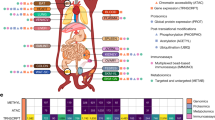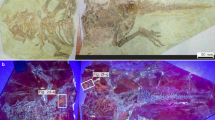Abstract
THE connective tissue content of muscles has been considered to be the principal biochemical entity responsible for toughness in meat. Little attention seems to have been given to the contribution which differences in the composition of muscle fibres themselves might make in rendering a muscle tough. I have examined the distribution of nitrogen within characteristically tough (semitendinosus) and tender (longissimus dorsi) muscles of different species (cattle, lambs, and pigs). The nitrogen components estimated were sarcoplasmic protein nitrogen, myofibril protein nitrogen, stroma nitrogen (by difference) and non-protein soluble nitrogen. The analytical technique used was essentially that of Lawrie's modification1 of Helander's extraction technique2.
This is a preview of subscription content, access via your institution
Access options
Subscribe to this journal
Receive 51 print issues and online access
$199.00 per year
only $3.90 per issue
Buy this article
- Purchase on Springer Link
- Instant access to full article PDF
Prices may be subject to local taxes which are calculated during checkout
Similar content being viewed by others
References
Lawrie, R. A., J. Agric. Sci., 56, 249 (1961).
Helander, E., Acta Physiol. Scand. (Suppl.), 41, 141 (1957).
Author information
Authors and Affiliations
Rights and permissions
About this article
Cite this article
HILL, F. Fibre Composition of Tough and Tender Muscles of Meat Animals. Nature 196, 65–66 (1962). https://doi.org/10.1038/196065a0
Issue Date:
DOI: https://doi.org/10.1038/196065a0
Comments
By submitting a comment you agree to abide by our Terms and Community Guidelines. If you find something abusive or that does not comply with our terms or guidelines please flag it as inappropriate.



